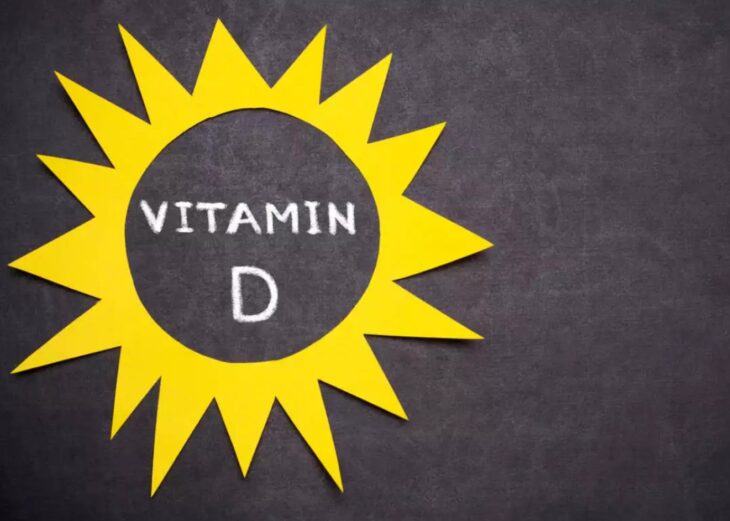Do you ever feel lethargic or fatigued for most of your day? Have you felt your muscles cramping without any reason? Have you ever tried taking dietary supplements to curb those issues? But have you ever wondered why this is so? These symptoms could be due to Vitamin D deficiency in your body.
Vitamin D deficiency can go undetected for several years because its symptoms are almost similar to that of many other diseases. But it is not something to be afraid of, and if one is detected, it can be easily cured within no time.
Vitamin D is an essential nutrient, and this means that even though our body does not produce it, its level should be maintained in our blood as it is important to lead a healthy life. Since it is not made in our body, it has to be provided to our body through external means.

Source: Holistic Kenko
Contents
Why is Vitamin D important?
Vitamin D is formed when our skin is exposed to sunlight. It is important for maintaining healthy and strong bones, teeth, and normal muscle function. It is known to regulate calcium and phosphate in one’s body.
In infants, deficiency of Vitamin D can cause rickets (i.e. softening and weakening of bones), and in adults, the deficiency can cause diseases of bones like Osteomalacia and Osteoporosis.
Further research has shown that Vitamin D also helps prevent hypertension, several kinds of cancers, depression, diabetes, chronic pain, cardiovascular diseases and reduces the chances of certain infections, including swine flu.
How to detect Vitamin D deficiency?

Source: New Hope Network
Symptoms
You should consider getting a Vitamin D deficiency test if you seem to be facing the following symptoms:
- Feeling tired or fatigued and experiencing headaches
- Experiencing skeletal pain, especially in joints, ribs, back, etc
- Feeling low
- Irregular and slow healing of wounds
- Seeing signs of hair loss
- Muscle fatigue
Most Vulnerable Groups
Certain groups are also more likely to face Vitamin D deficiency and should take special care to prevent its deficiency, and they are as follows:
- People working desk jobs who get less sun exposure
- People with darker skin-tones (the presence of melanin makes it harder for sunlight to be converted into Vitamin D)
- People with Inflammatory bowel disease
- Elderly over the age of 55
- Vegetarians and vegans
- Lactose intolerant people
- People with BMI (Body Mass Index) over 30
- People suffering from chronic headaches
Medical Diagnosis
The level of Vitamin D in one’s body can be analyzed through blood tests. You can either ask a technician to perform the test or visit a doctor, and the doctor will order two tests for checking Vitamin D serum level. Avial of blood will be filled from your vein, usually the arm, and then two diagnostic tests will be carried out. 25-hydroxy Vitamin D is the most used and common test to be carried out.
Apart from this, you can always order your diagnosis kit home from https://www.numan.com/supplements/Vitamin-d-test-kit for an easy and quick result.

Source: Times of India
Treatment of Vitamin D deficiency
Deficiency of Vitamin D can be treated by taking timely and the right treatment. There are certain treatments for Vitamin D deficiency that have been known to raise serum level for D in about eight weeks with a static and maintained plateau. Even though Vitamin D is an externally found Vitamin, there are synthetic formulations for this Vitamin that help cure the deficiency, some normally used methods are:
- Oral ingestion of Vitamin D2 found in 50,000 IU
- Vitamin D3 in 800 to 1,000 IU
Proven ways to correct Vitamin D deficiency quickly
- Spend time in direct sunlight if you are young and have a fair complexion. You will soak in a good amount of Vitamin D. It is recommended to spend time in the sun around midday. But remember to keep your activities like sunbathing limited as an excess of it can lead to sunburn, heat strokes, etc. Individuals with darker skin tone need to spend more time in the sun as compared to those with a lighter skin tone to form Vitamin D.
- Seafood, especially fatty fish, has been known to have high levels of Vitamin D; you can also try taking fish oil capsules for the same.
- Make mushrooms a part of your diet, both fresh or cooked are beneficial.
- Egg yolk could be made a part of your regular diet.
- If you can not get access to much sunlight, try using UV (ultraviolet) light.
- Take regular and recommended dietary supplements.
- Increase the consumption of dairy products that are fortified with a significant amount of Vitamins.
Remember to keep a check on your Vitamin D levels to make sure they are normal and contact a medical professional in case of severe symptoms.

Source: Open Access Government
What happens when you cross the normal level?
There has to be a required level of every nutrient in our body to help us remain healthy. When that level falls, it leads to a deficiency. But when the level is much higher than the normal, it is called excess. And an excess of Vitamin D can cause the following issues:
- Increased urination and thirst
- Nausea
- Weakness and confusion
- Constipation
- Slurring of words, also known as Ataxia.
Conclusion
Vitamin D is an essential compound necessary for staying healthy and strong. It helps prevent various diseases and improves our bodies’ day-to-day functioning by encouraging healthy muscles and bones. People who fall in the group to be most likely to face Vitamin D deficiency must take special care and follow preventive measures.
Vitamin D can be naturally obtained through sunlight and from certain Vitamin-rich foods. Synthetic Vitamin D can also be obtained by taking store-bought dietary supplements. In both cases, it has shown benefits. But, an excess of it should be avoided to stay in good health. A well-balanced life and some simple steps can help you to maintain a healthy Vitamin D balance.
